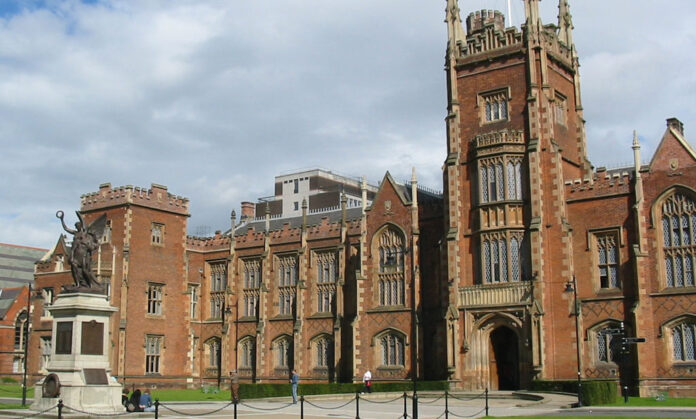A PARTEEN scientist is leading a new €2.39 million research programme at Queen’s University Belfast to investigate reversing the damage caused by Multiple Sclerosis (MS).
Dr Denise Fitzgerald from the Centre for Experimental Medicine at Queen’s is working with a team of international scientists on the ground-breaking MS research project to develop a new class of treatment for MS, which could restore lost functions in patients and significantly improve their quality of life.
The research programme, which is funded by the Wellcome Trust and Biotechnology and Biological Sciences Research Council (BBSRC), aims to understand how myelin, the insulating layer that surrounds nerves in the central nervous system, can be repaired.
Thousands of people in Ireland are affected by MS, with Northern Ireland having the second-highest incidence of MS in the world. Dr Fitzgerald was paralysed by a condition similar to MS when she was 21 but has fully recovered.
Dr Fitzgerald, who graduated from UCD, has been in the Queen’s University Belfast School of Medicine, Dentistry and Biomedical Sciences since 2009.
In an interview with RTÉ News, Dr Fitzgerald explained that in those with MS, the covering of the nerves in the brain becomes damaged and outlined that their goal is to repair this cover, which is similar to the insulation around an electrical wire. She believes this research has the potential to help many MS sufferers and describes her own personal experience as the “human experiment”.
“The repair happened very well and efficiently in my spinal cord and that doesn’t always happen with MS. The motivation is to understand how this natural repair process within the brain and spinal cord occurs. If we understand the biology, we can then make drugs to mimic that when the repair process doesn’t occur,” she explained.
In a statement issued to The Clare Champion, she acknowledged that thanks to the generous grants, scientists are now able to pursue the holy grail of reversing the damage caused by MS.
“At the moment, the treatments for patients limit the recurrence of relapses but none currently reverse the damage already done. Our research aims to understand how the damage done to the myelin can be repaired with a view to making an entirely new class of treatments for MS and other myelin disorders.
“If we are successful in our research goals, this could have huge potential to restore lost functions and improve the quality of life of people with MS.
“We are very grateful to the Wellcome Trust and the BBSRC for their generous grants, which makes this research possible, so that we may advance knowledge and change lives,” she stated.
Giovanna Lalli, neuroscience senior portfolio developer at Wellcome, said this is a really innovative study looking at the way the immune system and the central nervous system interact.
“Investigating how certain immune cells can influence the repair of myelin will provide novel insights on the biology of this important process and the results could pave the way for future therapies for debilitating diseases, such as MS,” she said.
Patricia Gordon, director of the MS Society Northern Ireland, described the work as a hugely important and exciting project, which illustrates the ambition of those involved in MS research.
“Research into myelin repair will be welcome news to the 100,000 people across the UK living with MS. We are very pleased to see work in Northern Ireland recognised with such a significant grant and look forward to seeing the results of Queen’s University and Dr Fitzgerald’s important work.
“With bright minds, investments like this and continued collaboration between all of us involved in such research, together we can beat MS,” she predicted.
Dan Danaher
A native of Ennis, Colin McGann has been editor of The Clare Champion since August 2020. Former editor of The Clare People, he is a journalism and communications graduate of Dublin Institute of Technology.




